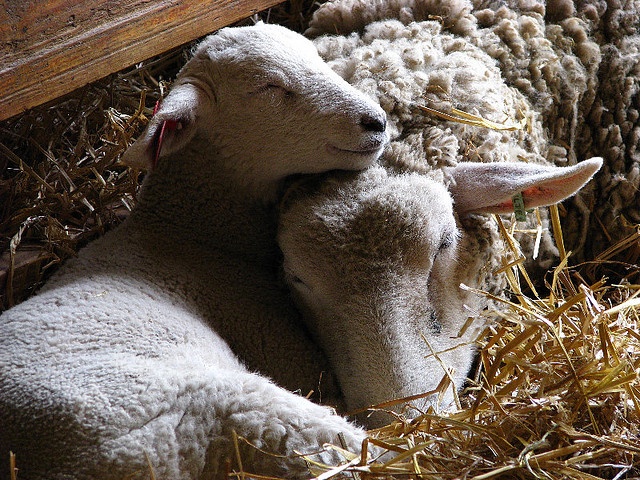As a homesteader, one of my primary concerns is the health and welfare of my animals. I ensure they get medical care when they need it.
And I make sure they always have access to good food and clean water. The motivation for this comes in part from my Buddhist practice.
I wouldn’t be keeping my vow to, “save all beings from suffering” if I let animals under my care endure pain. But there is also a practical motivation.
My chickens won’t lay eggs if they’re unhappy. My rabbits won’t produce compost if they’re miserable. And my cats won’t come home at night if they feel I’m a danger to them.
One of the ways I know my animals are doing well is if they feel comfortable enough to rest. If the cats are lounging in the sun, the rabbits are cuddling each other, and the chickens are wandering around, scratching at the dirt, then I know everything is fine.
It’s when my animals seem anxious or agitated that I know there is a problem afoot.
Humans, on the other hand, are different. Whether things are going well or going poorly the people I meet every day always seem anxious. If they don’t have actual problems to deal with, the imagine problems that might happen, and try to think of ways to solve them.
The end result is they’re unhappy when things are going well, and they’re comletely miserable when things are going poorly. People, unlike animals, have forgotten how to rest.
This is why the practice of seated meditation is so important. When we sit silently on the cushion like Buddha did 2,600 years ago, we force ourselves to let go of our worldly troubles.
We don’t check our phones. We don’t gossip with our friends. We put ourselves in a position where our minds have little to no stimulation. And we unplug for a while.
This practice restores us mentally and physically, so we’re better able to handle the tougher moments of life. And it clears our senses, so we can appreciate the moments when life is good.
Namu Amida Butsu!


